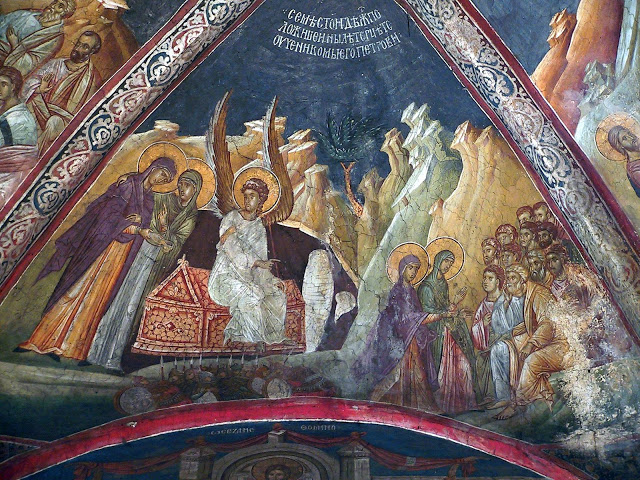
Many Orthodox Christians insist “Pascha” or any derivitive of the word Passover is the only correct name for the celebration of the Resurrection of Christ, among possibly other liturgical words for the feast, but insist the word “Easter” is innapropriate because it supposedly has pagan origins. Does it truly have pagan origins that would prohibit its use? Or are there in fact justifiable reasons to allow for “Pascha” and “Easter” to both be used with a clean conscience. Since “Pascha” is without controversy, we will examine these things for the word “Easter”.
Etymological relation vs. etymological descendance
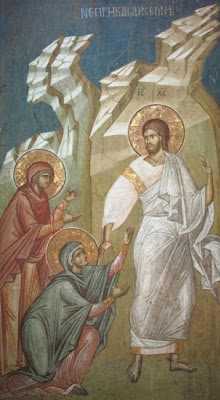
The word “Easter” has some etymological baggage. Some Christians are wary of using the word because of its supposed pagan origin. The Venerable Bede (672-735) asserted that the word “Easter” derived from “Eostre”, the goddess of the Saxons (De Ratione Temporum). In modern times Alexander Hislop connected Easter to the Babylonian goddess Astarte (The Two Babylons, 1858). Apparently, there was indeed a goddess by the name
“Eostre” (“Ostara” in German). Hence it seems that “Easter” and “Eostre” are etymologically related. However, it is foolish to take etymological relation as evidence of a “pagan connection” between “Easter” and “Eostre”. To see the foolishness of this, consider the following example: There was a Christian theologian in the third century by the name of “Lucian” of Antioch. There is also the name “Lucifer” ascribed to Satan (Isaiah 14:12). Both “Lucian” and “Lucifer” are derived from the Latin word for “light (lucis)”. This means that “Lucian” and “Lucifer” are etymologically related. However, neither is an etymological descendant of the other, which means neither name is derived from the other name. Each name is a separate etymological descendant of the root word for light, “lucis”. Thus it would be foolish to say, “A Christian should never call himself Lucian because the word is related to Lucifer!” Etymological relation between a negative word (i.e. Lucifer) and the impugned word (i.e. Lucian) does not mean anything. The issue is whether the impugned word is an etymological descendant of the negative word. As for “Lucian”, it is not an etymological descendant of “Lucifer”. Likewise, Easter is not an etymological descendant of Eostre but rather a separate etymological descendant of a common root word which in itself carries a neutral connotation.
“Easter” is derived from “East”
The root of “Easter” is “east” just as the root of “Ostern” (“Easter” in German) is “Ost” (“east” in German). Likewise, the root of “Eostre” (English) and “Ostara” (German) is the word for “east.” Thus both “Easter” and “Eostre” are derived from the word “east”. This means neither “Easter” nor “Eostre” has to be an etymological descendant of the other, but each could be a separate etymological descendant of the word “east”. The etymology of “east” gives us clues as to why both pagans and Christians wished to use the word “east” for their respective purposes. The etymology of the Saxon word “east” is:
– “O.E. east, from P.Gmc. *aus-to-, *austra- “east, toward the sunrise” (cf. Du. oost, Ger. Ost, O.N. austr “from the east”), from PIE *aus- “dawn” (cf. Skt. ushas “dawn,” Gk. aurion “morning,” O.Ir. usah, Lith. auszra “dawn,” L. aurora “dawn,” auster “south”), lit. “to shine.” The east is the direction in which dawn breaks.” (Online Etymological Dictionary)

“East” refers to the dawn, sunrise, morning. Hence if pagans wished to worship a goddess of sunrise, it was fitting for the pagans to name their goddess after the word “east”. But Christians also had reason to use the word “east” to describe the day of their Savior’s resurrection. Consider the following passages concerning Christ’s resurrection:
– “In the end of the sabbath, as it began to dawn toward the first day of the week, came Mary Magdalene and the other Mary to see the sepulchre.” (Matthew 28:1)
– “And very early in the morning the first day of the week, they came unto the sepulchre at the rising of the sun.” (Mark 16:2)
The day of Christ’ resurrection was in the morning at the rising of the sun. In fact, t was not only a physical morning but also a spiritual morning because the light of salvation had come into the world. Christ began to rise as the “Sun of righteousness” at his resurrection. The following passages compare Christ with the rising of the sun:
– “But unto you that fear my name shall the Sun of righteousness arise with healing in his wings;” (Malachi 4:2)
– “We have also a more sure word of prophecy; whereunto ye do well that ye take heed, as unto a light that shineth in a dark place, until the day dawn, and the day star arise in your hearts.” (2 Peter 1:19)
– “I am the root and the offspring of David, and the bright and morning star.” (Revelation 22:16)
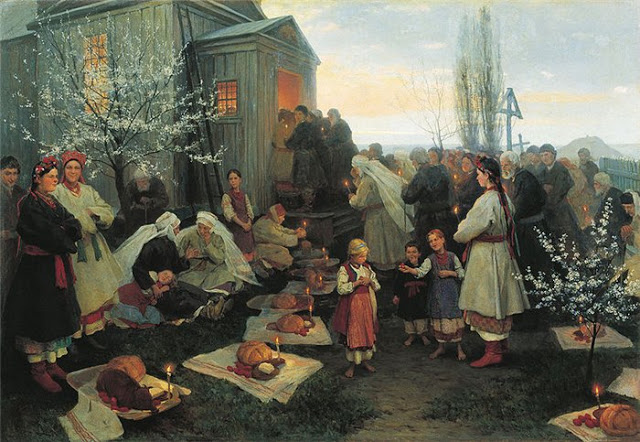
With these details of Christ and his resurrection, there is no mystery as to why Anglo-Saxon Christians called the day of his resurrection “Easter,” a word derived from “east,” which means dawn, sunrise, morning. Just as the sun rises from the darkness of night, the “Sun of righteousness” rose (resurrected) from the darkness of death. Christ’s resurrection was the sunrise of all sunrises – hence, Easter. This association of Christ’s resurrection with the dawn is not pagan but based on biblical narrative and symbolism.
Christians reclaimed the true meaning of “Easter”
Anglo-Saxon Christians may have given the name “Easter” to the day of Christ’s resurrection to identify Christ as the true God of sunrise (in the sense of being Creator of the sun as well as spiritually being the “Sun of righteousness”). Thus the word “Easter” stands as a testimony of the Anglo-Saxon Christians’ rejection of the goddess in reception of the true God, Jesus Christ. It is counterproductive to suggest that Christians should abandon the word “Easter”. Why should we give the pagans a monopoly over a word which signifies the dawn, one of God’s most stunning works of creation? The funny thing is that many Christians who oppose the use of the word “Easter” still celebrate “Good Friday”. Yet the word “Friday” is based on the name of a pagan goddess. The word “Friday” means “Day of Frige” – Frige being the name of a Norse goddess. “Good Friday” literally means “Good day of Frige (the goddess)”. Some Christians say that Christ rose on “Saturday”, yet “Saturday” is also derived from the pagan god Saturnus. If one would actually like to avoid a “pagan connection”, he would be wiser to avoid using the words “Friday” and “Saturday” rather than the Christian word “Easter”. Avoiding all of these words, of course, is an impossibility if we wish to communicate with others regarding the days of the week. We just have to admit that the English language is the language of a people who were once pagan and that there are many vestiges of pagan etymology in English. It is only by God’s redemptive grace that the words of our mouths (notwithstanding the occasional pagan etymologies) are found acceptable in His sight:
“Let the words of my mouth, and the meditation of my heart, be acceptable in Thy sight, O LORD, my strength, and my redeemer.” (Psalm 19:14)

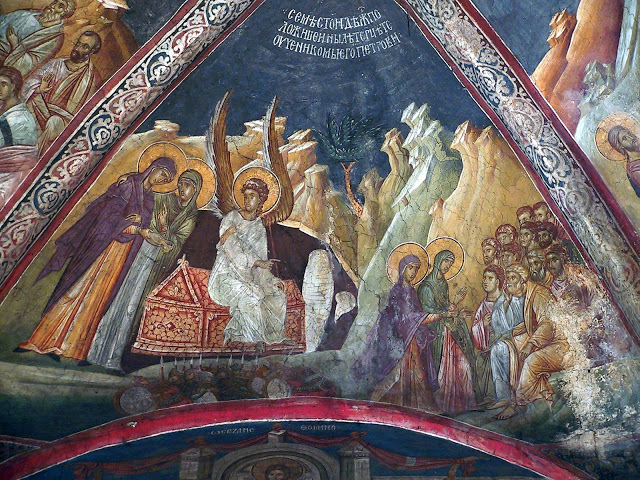
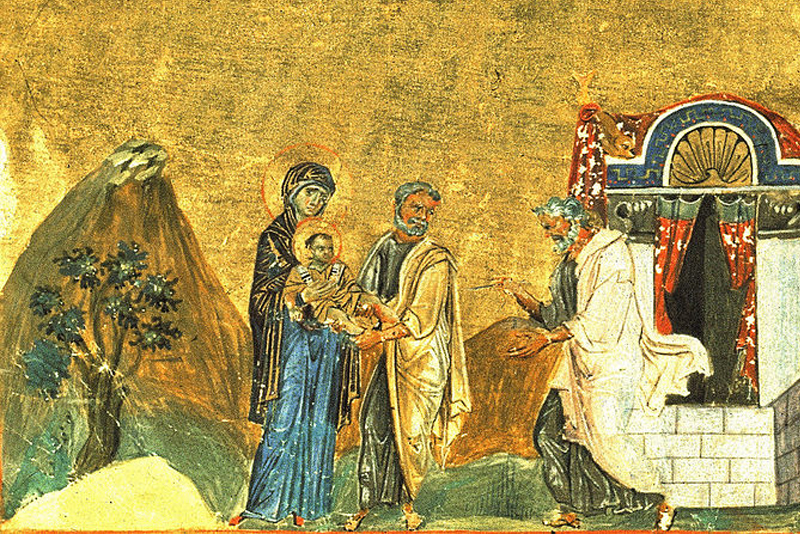


Whether it derived from a pagan god or tradition is not relevant. We as Orthodox Christians have Pascha that means Passover. The Jewish foreshadowing event that signified the passion and resurrection. It is far better that we educate those that follow heresies about the true term used by the true Church than succumb to yet another distortion of our beliefs.
People who get hung up on this are weirdos in my opinion. I read this article on Wednesday – aks WOTAN'S-day. OH MY GGODNESS! I could have waited to read it on Thursday – THOR'S-day! Or Friday – FREIDA'S-day! Or Saturday – SATURN'S-day… you get my drift.